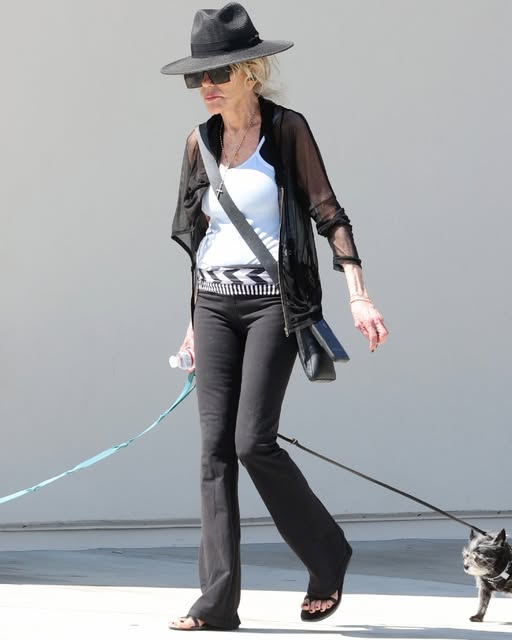“I loved him deeply,” she later said. “I was committed to him.”
But love didn’t erase the power imbalance that shaped their relationship from day one.
A Marriage Built on Control
Cannon has spoken openly about how Grant shaped nearly every part of her life during their marriage. He wanted her to quit acting — she quit. He wanted her to dress, move, even think a certain way — she tried. She found herself modifying tiny habits just to avoid disapproval.
There were no dramatic explosions.
Just slow, steady losses of who she was.
“If you go against your deepest feelings,” she reflected, “you’re screwed.”
Their marriage lasted just three years. When she filed for divorce in 1968, she cited emotional cruelty, pressure to take LSD, and physical mistreatment. She insisted she wasn’t chasing his fortune — she was fighting for space to breathe again.
“I couldn’t breathe in that atmosphere anymore.”
Yet she refused to paint him as a villain. She said she didn’t marry him for anything but love — and she didn’t leave him with bitterness.
“There were happy memories. I’m grateful for the experience. It brought me to be the woman I am today.”
A Daughter Who Changed Everything
From the collapse of the marriage came her greatest joy: Jennifer Grant, born in 1966 — Cary Grant’s only child. Motherhood grounded Cannon, giving her purpose and stability long after the divorce.
When Grant died in 1986, publishers immediately courted her with lucrative offers for a tell-all. She declined every single one. Even when Hollywood’s most powerful literary agent called personally. Even when Jacqueline Kennedy Onassis encouraged her to write a real memoir years later.
Cannon refused to write anything until she could do it with understanding — not resentment.
Life Beyond Cary Grant
After the divorce, Cannon didn’t disappear and she didn’t reinvent herself for attention. She simply kept living — working, growing, and showing up with the same spark audiences loved.
Even in her eighties, she has been spotted at basketball games, chatting with fans and signing autographs with a smile. Recent photos of her at 88 — wearing a white blouse, flared black leggings, a fedora, and sandals while walking her dogs — ignited reactions online.
Some celebrated her confidence.
Others criticized her appearance.
Cannon said nothing.
She didn’t need to.
Because after everything she’s survived, Dyan Cannon no longer lives for anyone else’s approval.
What Truly Grounded Her
The center of her life today isn’t fame or nostalgia. It’s her faith.
“Praying — that’s what keeps me straight,” she has said proudly, describing herself as a “big God girl.” She leads monthly Bible studies at her home and volunteers with people in addiction recovery, offering encouragement rooted in her own lived experience.
After the pressure of fame, a controlling marriage, and the constant judgment of the public eye, she rebuilt her life quietly — not with dramatic transformations, but with steady, sincere healing.
Looking back, she sums it up simply:
“It took me a while to find happiness, but I’m a happy puppy now.”
Her story isn’t a fairytale, and that’s exactly what makes it powerful.
It’s the journey of a woman who learned — slowly, bravely — that her worth had nothing to do with who she married, how she looked, or what Hollywood expected.
After nearly nine decades, Dyan Cannon is standing fully in her own skin.
And she’s glowing.
If this story inspired you, tap the heart, drop a comment, or share it with someone who loves classic Hollywood icons. What story should we dive into next?

